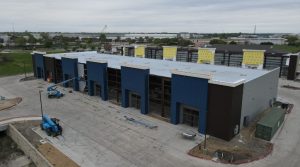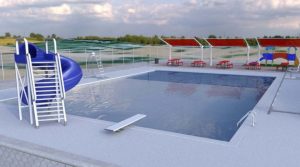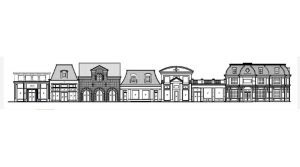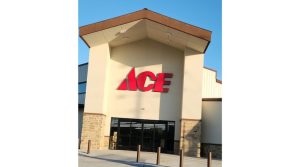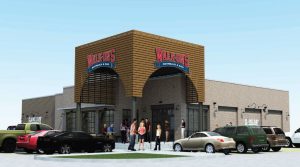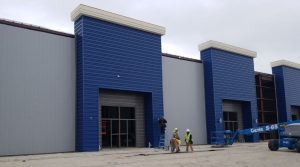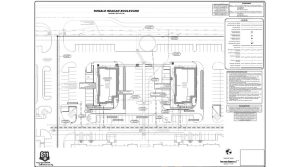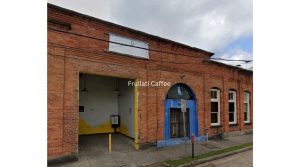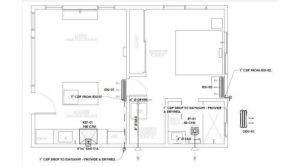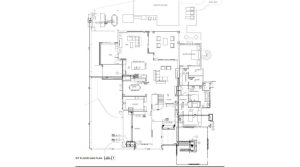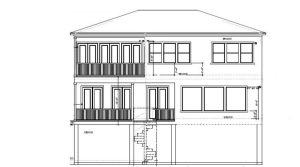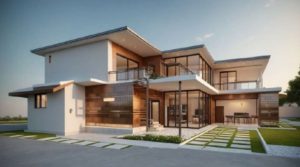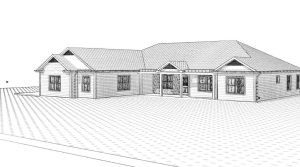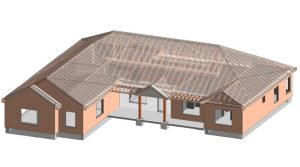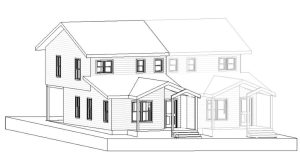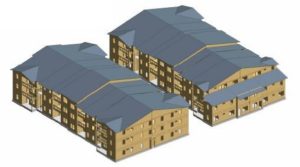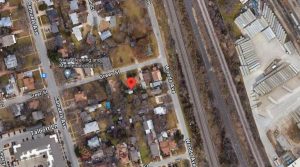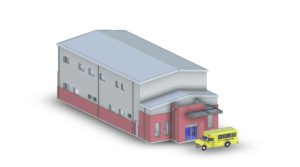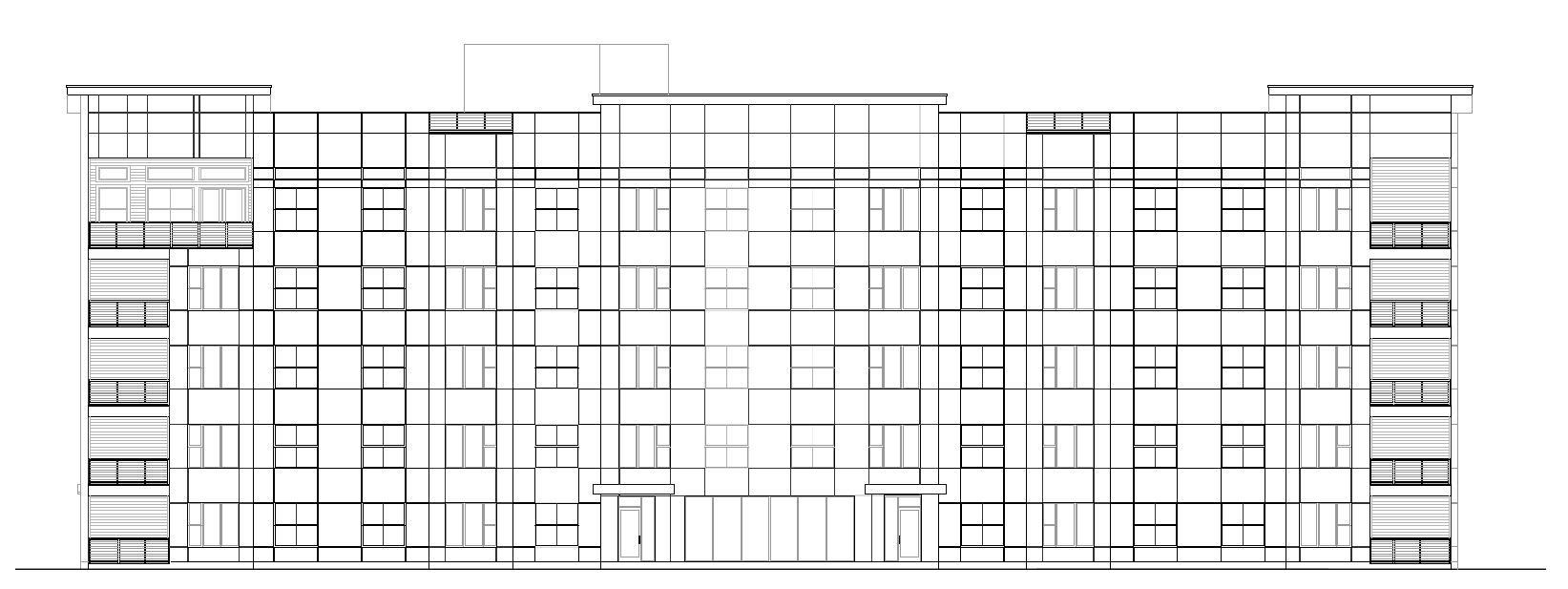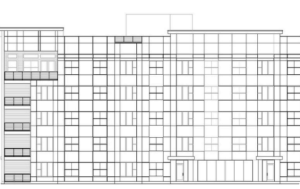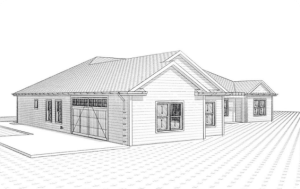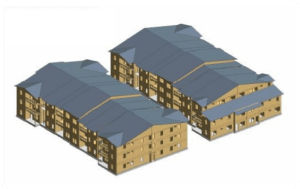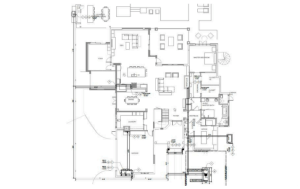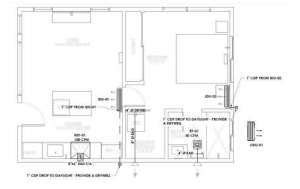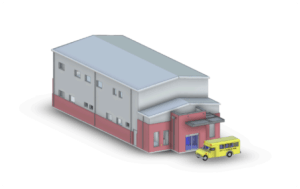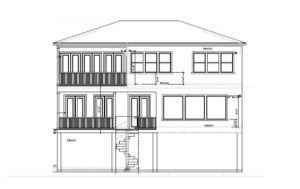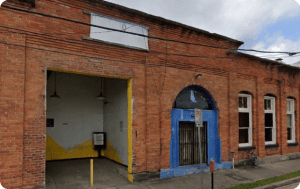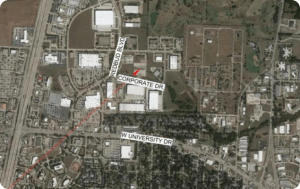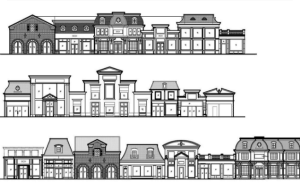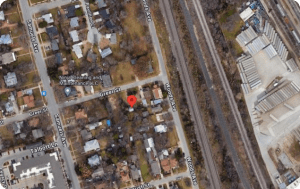Maximizing Efficiency and Comfort: The Significance of MEP Design Services in Pennsylvania
In today’s fast-paced world, businesses are searching for innovative ways to maximize efficiency and productivity while also providing a comfortable and safe working environment. This is where MEP design services come in handy. Mechanical, Electrical, and Plumbing (MEP) design services play a vital role in ensuring that buildings and facilities are designed to meet these standards. With the increasing demand for energy-saving and eco-friendly solutions, MEP design services have become more important than ever. In this blog post, we will explore the significance of MEP design services in Pennsylvania, the benefits they offer, and how they can help businesses to maximize efficiency and comfort while reducing costs. Whether it’s designing HVAC systems, lighting, plumbing, or electrical systems, MEP design services can help businesses to achieve their goals and ensure that their facilities are up to code and safe for occupants.
1. Introduction to MEP design services
Introduction to MEP Design Services
In the modern world, where technology and innovation continue to shape our daily lives, the importance of efficient and comfortable spaces cannot be overstated. Whether it’s an office building, a residential complex, or a commercial establishment, the design and functionality of the mechanical, electrical, and plumbing (MEP) systems play a crucial role in ensuring optimal performance and occupant satisfaction.
MEP design services encompass a comprehensive approach to the planning, design, and implementation of these critical building systems. It involves the integration of mechanical, electrical, and plumbing components to create an environment that is not only functional but also energy-efficient and sustainable.
The significance of MEP design services in Pennsylvania, a state known for its diverse architectural landscape and commitment to sustainable development, cannot be emphasized enough. With rapid urbanization and the increasing demand for energy-efficient buildings, the expertise of MEP design professionals is essential in maximizing efficiency and comfort while minimizing environmental impact.
The intricate nature of MEP systems requires a multidisciplinary approach, combining engineering principles, technological advancements, and industry best practices. From heating, ventilation, and air conditioning (HVAC) systems to electrical power distribution and lighting design, and from plumbing and fire protection systems to renewable energy integration, MEP design services cover a wide range of aspects that contribute to the overall functionality and performance of a building.
By engaging with MEP design services in Pennsylvania, individuals and organizations can benefit from the expertise of professionals who possess a deep understanding of local building codes, regulations, and environmental considerations. These experts employ advanced computer-aided design (CAD) tools, simulations, and analysis techniques to optimize the performance of MEP systems, ensuring that they meet the specific needs and requirements of each project.
In conclusion, MEP design services play a pivotal role in maximizing efficiency and comfort in the built environment. Whether it’s reducing energy consumption, improving indoor air quality, or enhancing occupant comfort, the expertise of MEP design professionals in Pennsylvania can contribute to the creation of sustainable, functional, and future-proof spaces that meet the needs of both present and future generations.
2. Understanding the importance of MEP design in Pennsylvania
MEP design, which stands for Mechanical, Electrical, and Plumbing design, plays a crucial role in maximizing efficiency and comfort in various structures throughout Pennsylvania. From residential buildings to commercial establishments, MEP design services are essential in ensuring that the mechanical, electrical, and plumbing systems are seamlessly integrated and optimized for optimal performance.
In Pennsylvania, a state known for its diverse climate, MEP design becomes even more significant. The extreme cold winters and hot summers pose unique challenges in terms of heating, ventilation, and air conditioning (HVAC) requirements. A well-designed MEP system takes into account these climate variations and ensures that the indoor environment remains comfortable and energy-efficient throughout the year.
Additionally, MEP design takes into consideration the electrical needs of a structure. From lighting systems to power distribution, a carefully planned electrical design ensures that the building has a reliable and safe electrical infrastructure. This is especially crucial in Pennsylvania, where reliable power supply is vital for both residential and commercial purposes.
Furthermore, plumbing systems are a critical component of any building, and MEP design services address the plumbing needs of a structure in Pennsylvania. From water supply and drainage systems to fire protection systems, a well-designed plumbing system ensures the efficient and sustainable use of water resources while maintaining safety and compliance with local regulations.
By understanding the importance of MEP design in Pennsylvania, property owners, developers, and architects can ensure that their structures are not only functional but also optimized for efficiency and comfort. With the help of experienced MEP design professionals, the integration of mechanical, electrical, and plumbing systems can be seamlessly achieved, resulting in buildings that are sustainable, cost-effective, and conducive to the well-being of occupants.
3. The role of MEP design in maximizing efficiency
MEP design, which stands for Mechanical, Electrical, and Plumbing design, plays a crucial role in maximizing efficiency in various building projects. It involves the integration of these essential systems to ensure optimal functionality, energy efficiency, and comfort within a structure. From large commercial buildings to residential complexes, MEP design services are indispensable for achieving sustainable and cost-effective solutions.
One of the primary goals of MEP design is to create a seamless integration of mechanical, electrical, and plumbing systems to enhance overall building performance. This entails careful planning and coordination to ensure that all components work together harmoniously. For instance, the HVAC (Heating, Ventilation, and Air Conditioning) system needs to be efficiently designed to provide adequate heating, cooling, and ventilation throughout the building while minimizing energy consumption.
Electrical systems are also a crucial aspect of MEP design, encompassing lighting, power distribution, and control systems. An effective electrical design ensures that the building has a reliable and efficient power supply, minimizing the risk of electrical failures and optimizing energy usage. Moreover, incorporating energy-efficient lighting solutions can significantly reduce electricity costs and contribute to a sustainable building design.
Plumbing systems, including water supply, drainage, and fire protection, are vital components of MEP design. A well-designed plumbing system ensures the efficient distribution and conservation of water throughout the building, reducing waste and improving sustainability. Additionally, incorporating fire protection measures, such as sprinkler systems, is essential to enhance occupant safety.
By emphasizing on MEP design during the early stages of a project, architects, engineers, and contractors can collaborate to create a comprehensive and efficient building design. This integration not only enhances the overall functionality but also contributes to occupant comfort and well-being. The careful consideration of factors such as energy efficiency, sustainability, and operational costs ensures that the building operates at its optimal performance, satisfying both the client’s requirements and industry standards.
In conclusion, MEP design services play a significant role in maximizing efficiency within buildings. From ensuring proper ventilation and temperature control to optimizing electrical and plumbing systems, MEP design professionals are instrumental in creating sustainable and comfortable spaces. By prioritizing MEP design during the planning and construction phases, project teams can deliver efficient and cost-effective solutions that meet the needs of clients and occupants alike.
4. Benefits of efficient MEP design in commercial buildings
Efficient MEP (Mechanical, Electrical, and Plumbing) design plays a crucial role in enhancing the overall performance and comfort of commercial buildings. By optimizing the design and integration of these systems, businesses in Pennsylvania can reap a host of benefits.
First and foremost, efficient MEP design helps reduce energy consumption and, subsequently, lowers operational costs. With rising energy prices and increasing environmental concerns, businesses are actively seeking ways to minimize their carbon footprint. By implementing energy-efficient MEP systems, such as smart lighting controls, efficient HVAC (heating, ventilation, and air conditioning) systems, and water-saving plumbing fixtures, commercial buildings can significantly reduce their energy usage and save on utility bills.
Moreover, efficient MEP design enhances indoor air quality and occupant comfort. Proper ventilation, air filtration, and temperature control systems ensure a healthy and comfortable environment for employees, customers, and visitors. This, in turn, can boost productivity, employee satisfaction, and overall customer experience within the building.
In addition to energy efficiency and comfort, efficient MEP design also contributes to the longevity and sustainability of commercial buildings. By utilizing high-quality materials, implementing preventive maintenance measures, and considering future expansion or modification needs, the MEP systems can be designed to withstand the test of time. This not only reduces the risk of costly repairs and system failures but also ensures that the building remains adaptable to changing business requirements.
Moreover, efficient MEP design aligns with regulatory requirements and sustainability certifications. Pennsylvania, like many other states, has stringent building codes and regulations related to energy efficiency and environmental impact. By incorporating efficient MEP design, commercial buildings can comply with these regulations and potentially earn certifications like LEED (Leadership in Energy and Environmental Design) or ENERGY STAR, which can enhance the building’s marketability and reputation.
In conclusion, efficient MEP design offers numerous benefits to commercial buildings in Pennsylvania. From cost savings and energy efficiency to improved occupant comfort and compliance with regulations, investing in a well-designed MEP system is a wise decision that can maximize efficiency and comfort for businesses and their stakeholders.
5. Enhancing comfort through effective HVAC design
When it comes to creating a comfortable environment, effective HVAC design plays a crucial role. HVAC stands for heating, ventilation, and air conditioning, and it is responsible for regulating the temperature, humidity, and air quality within a building. Whether it’s a residential, commercial, or industrial space, ensuring optimal comfort levels is essential for the well-being and productivity of the occupants.
With the ever-changing climate conditions in Pennsylvania, having a well-designed HVAC system becomes even more important. Extreme temperatures during the summer and winter seasons can make it challenging to maintain a comfortable indoor environment. This is where MEP (mechanical, electrical, and plumbing) design services come into play.
By employing the expertise of experienced MEP designers, you can enhance the comfort levels in your building significantly. These professionals carefully analyze the specific requirements of your space and design a customized HVAC system that meets your unique needs. They take into account factors such as insulation, ventilation, heating and cooling load calculations, and energy efficiency measures to create an HVAC solution that maximizes comfort while minimizing energy consumption.
Proper air distribution is a critical aspect of effective HVAC design. MEP designers ensure that air is evenly distributed throughout the building, eliminating hot or cold spots and ensuring consistent temperatures in all areas. This promotes a comfortable environment for occupants, eliminating discomfort and improving their overall experience.
Additionally, MEP designers consider factors such as noise control and air quality in their HVAC design. They incorporate soundproofing measures to minimize noise from HVAC equipment, creating a peaceful and quiet indoor environment. They also implement air filtration systems that remove pollutants, allergens, and odors from the air, ensuring a healthy and clean atmosphere for occupants.
Investing in professional MEP design services for your HVAC system not only enhances comfort but also brings numerous benefits to your building. It improves energy efficiency, reducing utility costs and environmental impact. It also prolongs the lifespan of your HVAC equipment by ensuring it operates at optimal levels, minimizing the risk of breakdowns and expensive repairs.
In conclusion, effective HVAC design is essential for enhancing comfort in buildings, especially in regions like Pennsylvania with diverse climate conditions. By utilizing the expertise of experienced MEP designers, you can achieve an HVAC system that provides optimum comfort, energy efficiency, and improved indoor air quality. Don’t underestimate the significance of MEP design services when it comes to maximizing efficiency and comfort in your building.
6. The impact of proper electrical design on energy usage
Proper electrical design plays a crucial role in optimizing energy usage and promoting sustainability. In Pennsylvania, where energy costs continue to rise, businesses and homeowners are seeking ways to reduce their energy consumption without compromising comfort or functionality. This is where MEP (Mechanical, Electrical, and Plumbing) design services come into play.
By implementing an efficient electrical design, buildings can minimize wastage and maximize energy efficiency. This includes strategic placement of outlets, lighting fixtures, and electrical appliances to ensure optimal functionality while minimizing energy consumption. Additionally, MEP designers can incorporate innovative technologies such as smart lighting systems, occupancy sensors, and energy management systems to further enhance energy efficiency.
One significant aspect of proper electrical design is load balancing. A well-designed electrical system can distribute power evenly across various circuits, preventing overloads and minimizing the risk of electrical failures or fires. This not only ensures the safety of occupants but also improves the overall energy efficiency of the building.
Moreover, MEP designers consider the integration of renewable energy sources, such as solar panels or wind turbines, into the electrical system. By harnessing clean and renewable energy, buildings can further reduce their reliance on traditional energy sources and decrease their environmental footprint.
In conclusion, the impact of proper electrical design on energy usage cannot be overstated. By partnering with experienced MEP design services in Pennsylvania, businesses and homeowners can optimize their electrical systems, reduce energy consumption, and contribute to a sustainable future.
7. Importance of plumbing design for water conservation and safety
Plumbing design plays a crucial role in both water conservation and safety, making it an essential aspect of MEP (Mechanical, Electrical, and Plumbing) design services. In Pennsylvania, where water resources are precious, optimizing plumbing systems to minimize wastage is of utmost importance.
Water conservation is not just an environmental concern, but also a financial one. By incorporating efficient plumbing design strategies, such as low-flow fixtures, water-efficient appliances, and smart irrigation systems, businesses and homeowners can significantly reduce their water consumption. This not only helps in preserving this valuable natural resource but also leads to substantial cost savings on water bills.
Moreover, plumbing design directly impacts the safety and well-being of occupants. A well-designed plumbing system ensures the proper flow and distribution of water, preventing issues such as leaks, backflows, and contamination. Adequate drainage systems are essential to prevent the accumulation of stagnant water, which can lead to the growth of harmful bacteria and pose health risks.
In Pennsylvania, where extreme weather conditions are not uncommon, plumbing design should also consider freeze protection measures. By incorporating insulation and proper pipe routing, designers can safeguard the plumbing system against freezing temperatures, preventing costly damages and disruptions.
Furthermore, plumbing design should adhere to relevant codes and regulations to ensure compliance with safety standards. This includes considering factors such as pipe sizing, pressure regulation, and adequate ventilation to prevent potential hazards and maintain a safe environment for occupants.
In summary, plumbing design plays a vital role in water conservation, financial savings, and ensuring the safety of occupants. By engaging professional MEP design services in Pennsylvania, businesses and homeowners can maximize efficiency, comfort, and sustainability in their plumbing systems.
8. Factors to consider when selecting MEP design services
When selecting MEP design services for your project in Pennsylvania, there are several important factors to consider.
Firstly, you should look for a company with a strong track record and experience in MEP design. This includes expertise in mechanical, electrical, and plumbing systems, as well as a deep understanding of local building codes and regulations. A reputable company will have a portfolio showcasing their previous projects and client testimonials to validate their capabilities.
Another factor to consider is the company’s ability to provide customized solutions. Each project has unique requirements, and a good MEP design service will take the time to understand your specific needs and goals. They should be able to offer innovative and efficient design solutions tailored to your project, ensuring optimal performance and functionality.
Efficiency is a key consideration in MEP design. Look for a company that emphasizes energy efficiency and sustainable design practices. This can help reduce operating costs and minimize environmental impact in the long run. Ask about their expertise in energy management, renewable energy systems, and green building certifications such as LEED.
Collaboration and communication are vital for successful MEP design projects. Ensure that the company you choose has a team of skilled professionals who are experienced in working closely with architects, engineers, contractors, and other stakeholders. Effective communication and coordination throughout the design and construction process are essential for a smooth and timely project completion.
Lastly, consider the company’s commitment to providing ongoing support. MEP systems require maintenance and occasional upgrades. A reliable MEP design service will offer post-construction services, including system inspections, troubleshooting, and recommendations for improvements.
By considering these factors when selecting MEP design services in Pennsylvania, you can ensure that you partner with a competent and reliable company that will maximize efficiency and comfort in your project.
9. Real-life examples of successful MEP design projects in Pennsylvania
Pennsylvania is a state that has witnessed numerous successful MEP design projects over the years. These projects have not only maximized efficiency but also brought about a significant level of comfort for the end-users. Let’s take a closer look at some real-life examples of these remarkable endeavors.
One notable project is the renovation of a commercial office building in Philadelphia. The MEP design services implemented here focused on optimizing energy usage while providing a comfortable working environment. The installation of advanced HVAC systems with smart controls allowed for precise temperature regulation, ensuring that employees could work in a pleasant atmosphere throughout the year. Additionally, the integration of energy-efficient lighting solutions and smart building automation systems helped to reduce electricity consumption, resulting in substantial cost savings for the building owner.
Another noteworthy example is the design and construction of a state-of-the-art healthcare facility in Pittsburgh. The MEP design team worked closely with healthcare professionals to create an environment that prioritized patient comfort, staff productivity, and energy efficiency. Through the implementation of advanced HVAC systems, the facility could maintain precise temperature and humidity levels, ensuring optimal conditions for patients and medical equipment. Moreover, the integration of energy recovery systems and efficient lighting solutions minimized energy waste, contributing to sustainable operations and reduced utility costs.
In the city of Harrisburg, a large-scale residential complex underwent a comprehensive MEP design overhaul. The focus was on enhancing residents’ comfort, promoting energy efficiency, and reducing the building’s environmental footprint. The MEP design team utilized innovative technologies such as geothermal heating and cooling systems, solar panels, and rainwater harvesting systems. These measures not only provided residents with comfortable living spaces but also significantly reduced the building’s reliance on traditional energy sources, leading to long-term cost savings and a greener footprint.
These real-life examples demonstrate the significant impact of MEP design services in Pennsylvania. By prioritizing efficiency and comfort, these projects have transformed various types of buildings, from commercial offices to healthcare facilities and residential complexes. The integration of advanced systems and sustainable practices has not only improved the overall quality of the indoor environment but has also resulted in cost savings and reduced environmental impact. By embracing MEP design services, Pennsylvania continues to pave the way for efficient and comfortable buildings that meet the needs of its residents and businesses alike.
10. Conclusion: Investing in MEP design for optimal efficiency and comfort
Investing in MEP (Mechanical, Electrical, and Plumbing) design services is crucial for achieving optimal efficiency and comfort in Pennsylvania. Throughout this blog post, we have explored the various aspects and benefits of MEP design, from energy efficiency to occupant comfort and safety.
MEP design plays a pivotal role in ensuring that buildings are equipped with efficient heating, ventilation, and air conditioning (HVAC) systems. By carefully planning and implementing MEP systems, the energy consumption of a building can be significantly reduced, resulting in cost savings and a greener environment.
Moreover, MEP design services take into account the specific needs and requirements of the building occupants. By incorporating advanced technologies and innovative design strategies, MEP professionals can create a comfortable indoor environment that promotes productivity, well-being, and satisfaction.
In addition, MEP design services encompass plumbing systems that ensure a reliable supply of clean water and efficient disposal of waste. These systems are designed to meet the highest standards of health and safety, ensuring the well-being of the building’s occupants.
By investing in MEP design, building owners and developers can benefit from long-term cost savings, improved energy efficiency, enhanced occupant comfort, and compliance with regulations and codes. The expertise and guidance of MEP professionals enable the seamless integration of all building systems, resulting in a harmonious and functional space.
In conclusion, the significance of MEP design services in Pennsylvania cannot be overstated. Whether it’s a commercial building, residential complex, or industrial facility, investing in MEP design is essential for maximizing efficiency, comfort, and overall building performance. By partnering with experienced MEP professionals, building owners can unlock the full potential of their properties and create spaces that are both efficient and comfortable for all occupants.In conclusion, we have explored the significance of MEP design services in Pennsylvania and how they contribute to maximizing efficiency and comfort in buildings. The importance of MEP design cannot be overstated, as it plays a crucial role in ensuring that buildings are equipped with efficient systems for mechanical, electrical, and plumbing needs. From energy conservation to occupant comfort, MEP design services are essential for creating sustainable and functional spaces. Whether you are a homeowner, architect, or developer, investing in professional MEP design services is a wise decision that will yield long-term benefits. By partnering with experienced professionals, you can ensure that your building projects in Pennsylvania are optimized for efficiency, performance, and comfort.



